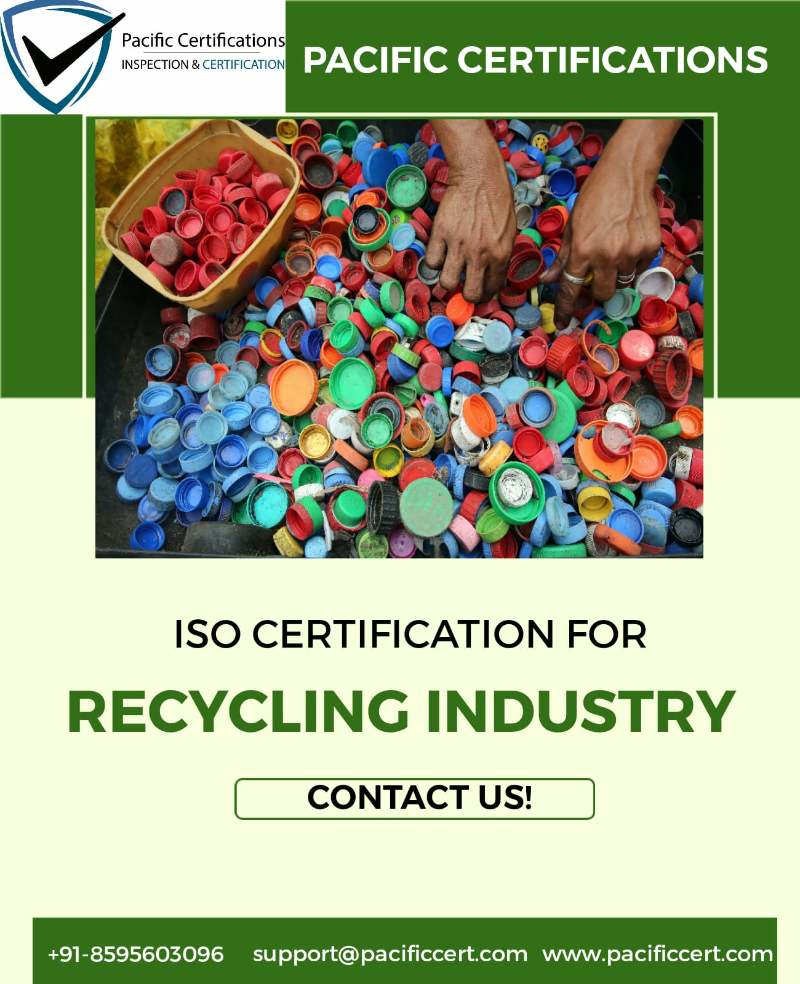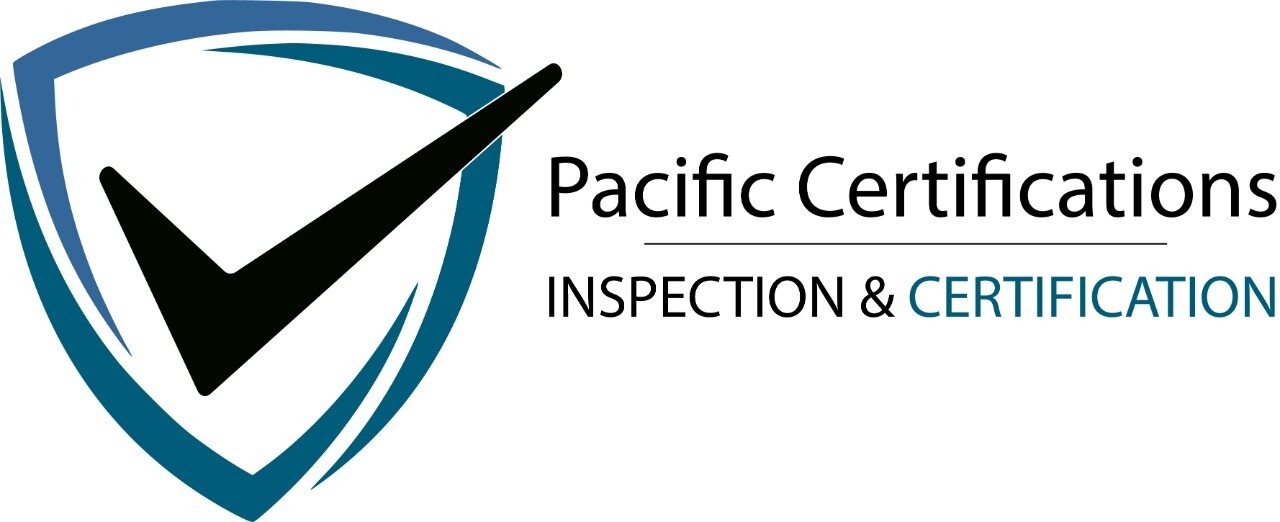ISO Certifications for Recycling Industry, Requirements and Benefits

Introduction
The recycling industry has grown from local collection points to a global network of facilities that process plastics, metals, paper, electronics, and more. Recycling plants now play a central role in how societies manage waste and conserve resources. The industry also sits at the crossroads of environmental policy and business, since many manufacturers are under pressure to reduce their use of virgin raw materials.
Global demand is rising quickly. According to the World Bank, over two billion tones of waste are generated worldwide each year, and this figure is expected to increase by 70% by 2050 if nothing changes. At the same time, governments are setting ambitious recycling targets, for example, the European Union requires member states to recycle at least 65% of municipal waste by 2035. Against this backdrop, recycling companies are expected to show not only technical ability but also accountability, safety, and sustainability. ISO certifications help them build systems that prove these commitments to regulators, and the public.
In this article, we will explore the key ISO standards relevant to the recycling industry, including their applications, key requirements, and benefits.
Get started with your certification process for your recycling business, contact us at [email protected] today!
Recycling is not a side activity anymore — it has become a core industry for cities, manufacturers, and governments working to cut waste and build sustainable supply chains.
Quick Summary
ISO certifications give recycling companies a structured way to manage safety, environmental impact, and quality. The most relevant standards are ISO 14001 (environment),
ISO 9001 (quality), and ISO 45001 (safety), with additional options like ISO 50001 and ISO 22301 for larger operations. Certification strengthens trust with regulators, municipalities, and manufacturers while opening new business opportunities in a fast-growing global market.
Applicable ISO standards for Recycling Industry
The recycling industry can benefit from various ISO standards that help ensure quality and safety. Here are some of the key ISO standards relevant to the recycling industry:
ISO 14001: Environmental Management Systems (EMS)
As recycling companies focus on environmental conservation, ISO 14001 provides a framework for managing environmental responsibilities. This standard helps recycling firms identify and control the environmental impacts of their operations, also ensures compliance with local and international environmental regulations.
ISO 9001: Quality Management Systems (QMS)
ISO 9001 is an internationally recognized standard for quality management systems (QMS). It is particularly relevant to recycling companies. ISO 9001 helps companies in the recycling sector standardize their processes, improve waste sorting accuracy, and ensure that the end products meet regulatory and market requirements.
ISO 45001: Occupational Health and Safety Management Systems (OHSMS)
Recycling operations often involve physical labor, heavy machinery, and hazardous materials. ISO 45001 is the standard for occupational health and safety (OHS) management systems, helping recycling companies provide a safe working environment for employees.
ISO 50001: Energy Management Systems (EnMS)
ISO 50001 focuses on energy management systems (EnMS) and is relevant for recycling companies looking to optimize their energy consumption. Given the energy-intensive nature of recycling operations, implementing ISO 50001 helps companies manage their energy use more efficiently, reducing costs and minimizing environmental impact.
ISO 26000: Social Responsibility
This standard offers guidelines for organizations to assess and address their social responsibility, including aspects related to human rights, labor practices, and community involvement.
ISO 14064: Greenhouse Gas (GHG) Accounting and Verification
For recycling businesses aiming to measure and report their greenhouse gas emissions, ISO 14064 provides a framework for GHG accounting and verification.
ISO 14020-14025: Environmental Labels and Declarations
These standards provide guidelines for environmental labeling and declarations, which can be valuable for recycling companies looking to communicate the environmental attributes of their products or services.
ISO 14040 and ISO 14044: Life Cycle Assessment (LCA)
Recycling companies may use LCA to assess the environmental impacts of their processes and products. ISO 14040 and ISO 14044 provide principles and guidelines for conducting LCAs.
ISO 20121: Event Sustainability Management Systems
Recycling businesses involved in managing recycling services for events can benefit from ISO 20121, which focuses on sustainable event management.
ISO 22301: Business Continuity Management Systems
Ensuring the continuity of recycling operations, especially during unexpected disruptions, is essential. ISO 22301 provides guidelines for establishing business continuity management systems.
Click here to find out more applicable standards to your industry
What are the requirements of ISO Certifications for Recycling Industry?
Certification is not just about passing an external audit; it requires recycling companies to put structured systems into practice. Common requirements include:
Defining scope: Whether the business handles household waste, industrial recyclables, or specialized streams like e-waste or plastics.
Policies and commitments: Setting clear policies on quality, worker safety, and environmental performance.
Risk assessment: Identifying hazards such as chemical exposure, fire risk, and equipment malfunctions.
Documented processes: Written procedures for waste collection, sorting, processing, storage, and transport.
Staff training: Equipping workers to handle materials safely and manage modern sorting and processing equipment.
Record keeping: Maintaining logs of volumes processed, recycling rates, emissions, and incidents.
Monitoring and audits: Tracking key indicators and reviewing results through regular internal audits.
Tip: Recycling companies should start with ISO 14001 because it directly supports environmental goals. Adding ISO 9001 ensures better consistency and documentation, while ISO 45001 is especially important for plants with high safety risks.
What are the benefits of ISO Certifications for the Recycling Industry?
ISO certifications bring significant benefits to recycling companies. These include:
Certification demonstrates that recycling practices meet national and international standards.
ISO 45001 lowers accident rates in facilities with heavy machinery and chemical exposure.
ISO 14001 helps companies manage emissions, energy use, and waste treatment more effectively.
Standards like ISO 9001 and ISO 50001 reduce errors and cut operational costs.
Certified recyclers are more attractive to municipalities and manufacturers seeking reliable partners.
ISO 22301 supports continuity planning in case of breakdowns or supply shortages.
Certification signals responsibility, which matters in an industry often under scrutiny.
Recycling has shifted from being optional to essential. Global pressure to reduce landfill waste and curb carbon emissions has made recycling a cornerstone of climate strategies. For instance, the global plastic recycling market alone is projected to surpass USD 70 billion by 2030, driven by bans on single-use plastics and corporate commitments to circular economy models.
E-waste is another fast-growing stream, with over 50 million tones generated annually, yet less than 20% is currently recycled through proper channels. This creates both a challenge and an opportunity for certified recyclers. Companies with ISO 9001, ISO 14001, and ISO 45001 stand out in tenders and government programs aimed at raising recycling rates.
Digitalization is also shaping the industry. Smart sorting systems, IoT-enabled waste tracking, and blockchain for recycling credits are emerging, making ISO/IEC 27001 relevant for protecting sensitive data and ensuring system integrity.
How Pacific Certifications can help?
Pacific Certifications, accredited by ABIS, audits and certifies recycling businesses of all sizes. Whether you manage municipal waste, industrial recycling plants, or e-waste facilities, we provide independent certification to help you align with ISO standards and gain recognition from regulators and clients.
Here’s why recycling companies should choose us for their ISO certification needs:
Our auditors have extensive experience in the recycling industry and are committed to conducting thorough and accurate audits.
We provide detailed and transparent audit reports to help you understand how your operations align with ISO standards.
We aim to make the certification process as smooth as possible, ensuring timely and efficient service.
We offer continuous support and guidance during the certification process, from initial assessments to regular audits.
Contact Us
If you need more support with ISO certifications for your recycling business, contact us at +91-8595603096 or [email protected]
Author: Sony
Read More at: Blogs by Pacific Certifications
